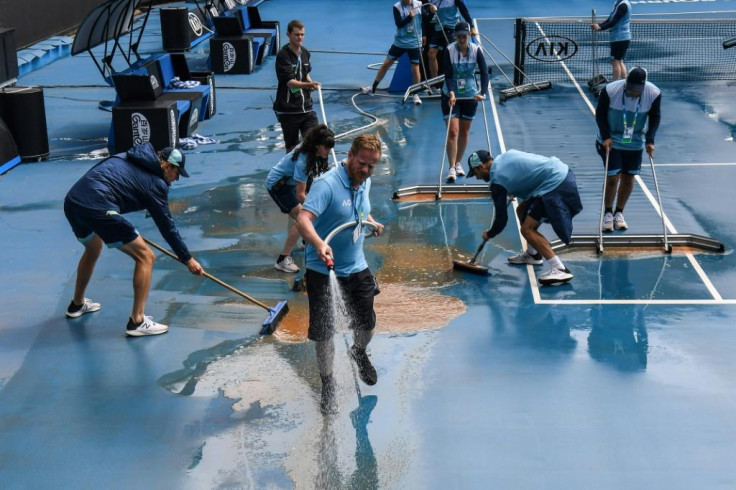Australian Open organisers activate extreme heat policy
Rod Laver Arena's roof was closed to combat severe weather conditions
Australian Open organisers have activated their extreme heat policy on Friday, as temperatures in Melbourne reached 110 degrees Fahrenheit (43 degrees Celsius).
Back in 2019, the same tournament got rid of its Wet-Bulb Globe Temperature gauge and replaced it with a newly introduced heat stress scale for determining whether playing conditions are safe enough. This heat stress scale takes into consideration several factors like air temperature, humidity, radiant heat, and wind speed. It gives a reading between 1 and 5.
In case the reading reaches 3, players are recommended to increase their hydration. They are also advised to apply numerous cooling strategies. When the reading hits 4, the tournament's referee gets the ability to offer extended breaks between each set. In even worse scenarios, at 5, play is to be suspended.
On Friday at 2 p.m. local time, the reading reached its maximum level. This meant all juniors, doubles and wheelchair matches due on outdoor courts were suspended. Additionally, the roof above the Rod Laver Arena was closed to facilitate the two mixed doubles semifinals.
Later, the temperatures in Melbourne cooled slightly. It is expected that the temperature would hover around 100 F (40 C) during much of the evening until 7:30 p.m. That is when the second men's semifinal between Dominic Thiem and Alexander Zverev is scheduled.

Although the heat stress scale reading later dropped to 4 and outdoor play was resumed, the roof over the Rod Laver Arena remained closed.
In case the heat stress scale reading remains at 4, it would still mean that extended breaks will be offered during the Thiem-Zverev match.
The winner of Friday's semifinal will take on seven-time Australian Open champion Novak Djokovic on Sunday. In the first semi-final on Thursday, the Serbian icon defeated Roger Federer in straight sets.
Meanwhile, Zverev made a promise last week that he would eventually donate £7,600 (US$10,000) for each of the matches he wins in Melbourne. In previous Gram Slam events, the German never advanced past the quarter-final stage. However, this time, he has broken the shackles and landed in the last four. The world No 5 hasn't dropped a set so far in this tournament.
© Copyright IBTimes 2025. All rights reserved.





















